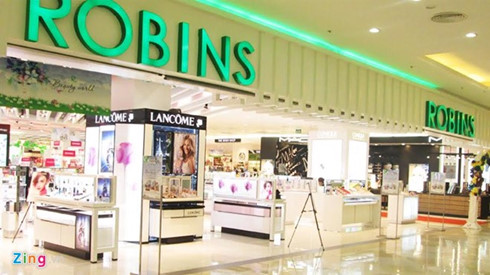
The phrase 'Thai wave' has been used recently as a series of Thai billionaires have announced the acquisition of retail chains in Vietnam.
 |
The phrase ‘Thai wave’ has been used recently as a series of Thai billionaires have announced the acquisition of retail chains in Vietnam.
However, Thai investors have been present in Vietnam for many years.
Amata, Asia’s large industrial city developer owned by Vikrom Kromadit, a Thai renowned businessman, began construction of the 700 hectare Amata Industrial Zone (IZ) in Bien Hoa City of Dong Nai province in 1994. To date, it has poured US$1.9 billion into the IZ.
Following the success with Amata IZ, in 2012, the conglomerate developed Amata Express City in Dong Nai province, covering an area of 1,285 hectares. It has also planned to build Future City in Quang Ninh province to attract Thai investors.
Amata is a big company in IZ infrastructure development, and CP Group is a giant in the feed and animal husbandry industry. The group joined the Vietnamese market early after Vietnam began opening its doors to foreign investors.
In 1993, CP Vietnam was established and the animal feed factory was set up in Dong Nai province.
Since then, it has been unceasingly expanding its production in feed, farm and food sectors. In 2014, CP reported revenue of US$2.07 billion, including US$867 million from feed production, the figure that many foreign invested enterprises in Vietnam dream of.
Meanwhile, Thai BJC Group is well known in Vietnam as the owner of a series of retail brands, including Metro, B’s mart and Robins.
Of these, Metro, with 19 supermarkets located in large cities, is one of the most important chains. In 2014, BJC bought the chain from German Metro Group.
BJC bought B’s mart, with tens of shops in Ho Chi Minh City from a Japanese investor and has been trying to develop the chain throughout the country.
However, retail is not the only business field BJC invests in. The group, through TTC Land, a subsidiary, is the owner of Melia Ha Noi Hotel which always gets revenue of over US$20 million in the last few years and pre-tax profits of US$10 million.
Siam Cement Group (SCG) is known as a big player in the building material industry. SCG has been present in Vietnam for 20 years and now has 20 subsidiaries.
In 2012, it once stirred up the Vietnamese public with the deal of taking over the Buu Long Cement Plant in Dong Nai and acquiring 85 % of stakes of Prime Group at 7.2 billion baht (VND5 trillion). Its latest affair was the takeover of Tin Thanh Plastics Packaging Company.
Thai Corp International Vietnam (TCI) is one of the best known FMCG (fast moving consumer goods) distributors with 19 years of experience in Vietnam.
(Source: VOV)




